GENG FU XING
4.6/5
670 Reviews
No. 1 of Local Restaurants in Wuhu
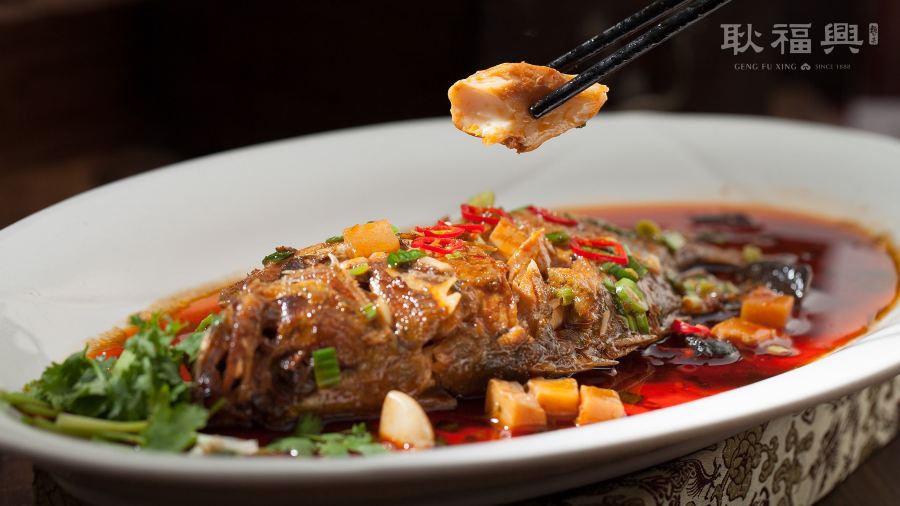
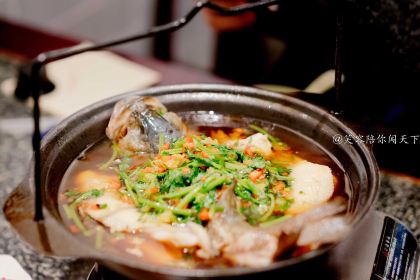
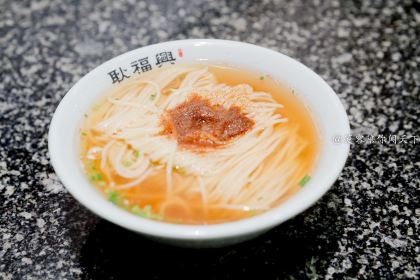
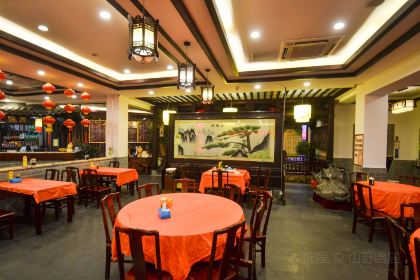
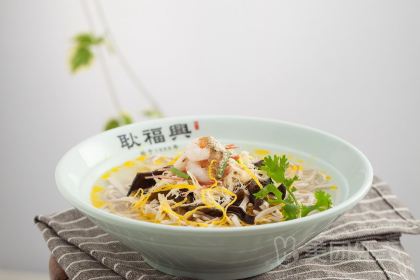
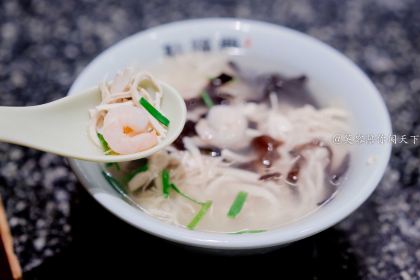
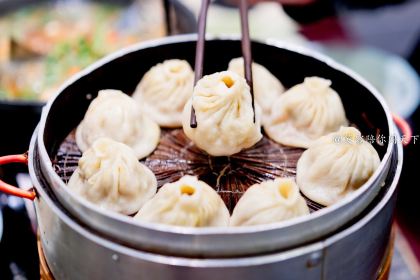
More
Open Now|06:30-14:00Show more
+865533845577
10 Phoenix Food Street
 M49***48**Geng Fuxing: A taste epic of Jiangcheng cooked in a century-old stove**
Founded in 1888, Geng Fuxing has built a living museum of Anhui cuisine in Wuhu Fenghuang Food Street with bluestone counters, eight-immortal square tables and mottled copper hanging pots. This time-honored shop, which carries the taste memories of three generations of Jiangcheng people, uses steaming steam to refine the food culture of southern Anhui into nostalgia on the tip of the tongue.
**Shrimp roe noodles: the most delicious aesthetics gifted by the Yangtze River**
At five in the morning, the master chef began to boil the bone soup - the eel bones and tube bones were rolled in the pottery pot for eight hours, and the Yangtze River shrimp roe was sprinkled in when the soup was milky white. The thin noodles fell neatly into the bowl, and when the soup was poured, the shrimp roe floated with the heat wave, like stars falling into the Milky Way. The moment you take a bite, the salty fragrance of the river fresh and the mellowness of the bone soup burst on the tip of your tongue, and with a spoonful of secret spicy oil, it is like the river water stirring the rocks, awakening the "river fresh worship" in the genes of Wuhu people.
** Crispy sesame cake: the time and space code tempered by charcoal fire**
In front of the open stall facing the street, the master holds a long tong to turn the sesame cake, and the charcoal fire of the old furnace reflects the vicissitudes of life on his face. Lard and chives are kneaded into the dough, sprinkled with sesame seeds and baked against the wall of the furnace. When it comes out of the oven, the crispy skin is as white as snow. The moment you bite it open, the fragrance of onion and burnt aroma gushes out, and the crispness and softness symphony between your teeth. The power of a century of inheritance is all hidden in this three-fold and nine-kneading process. With a bowl of red bean wine, it is sweet and refreshing, which is the soul of Jiangcheng morning tea.
** Crab roe soup dumplings: Jiangnan quatrains with fragrance on your fingers**
The golden ratio of crab roe and pork mince is now opened, and the master uses 32 folds to lock it into the thin dough. When it is lifted and moved slowly, the soup shakes like amber in the skin, and a sip of it is so fresh that it makes your eyebrows fall. Amid the chatter of old tea drinkers by the window, waiters shuttled back and forth with steamers. When the wooden tray was opened, white mist rolled up, and it seemed as if I had returned to the bustling morning light of Dajiaxiang during the Guangxu period.
From the stalls of Dajiaxiang in the Qing Dynasty to the intangible cultural heritage protection unit today, Geng Fuxing used the boiling years in the copper hanging pot to stew the Jianghu spirit, wharf soul, and Jiangnan charm of Wuhu into a bowl of vivid city memory.
(Word count: 300)
---
**Food Guide**
- Three must-order dishes: shrimp roe noodles (15 yuan/bowl), crispy sesame cakes (2 yuan/piece), and crab roe soup dumplings (28 yuan/cage)
- During the morning tea period (6:00-9:30), you can experience the tradition of waiters singing the menu. The second-floor private rooms must be booked in advance
- Head office address: No. 10 Fenghuang Food Street, Jinghu District, 15 minutes walk from Binjiang Park
- Cultural Easter eggs: The store displays century-old noodle-making tools, and the intangible cultural heritage souvenir "shrimp roe sauce" can be purchased at the cashier
M49***48**Geng Fuxing: A taste epic of Jiangcheng cooked in a century-old stove**
Founded in 1888, Geng Fuxing has built a living museum of Anhui cuisine in Wuhu Fenghuang Food Street with bluestone counters, eight-immortal square tables and mottled copper hanging pots. This time-honored shop, which carries the taste memories of three generations of Jiangcheng people, uses steaming steam to refine the food culture of southern Anhui into nostalgia on the tip of the tongue.
**Shrimp roe noodles: the most delicious aesthetics gifted by the Yangtze River**
At five in the morning, the master chef began to boil the bone soup - the eel bones and tube bones were rolled in the pottery pot for eight hours, and the Yangtze River shrimp roe was sprinkled in when the soup was milky white. The thin noodles fell neatly into the bowl, and when the soup was poured, the shrimp roe floated with the heat wave, like stars falling into the Milky Way. The moment you take a bite, the salty fragrance of the river fresh and the mellowness of the bone soup burst on the tip of your tongue, and with a spoonful of secret spicy oil, it is like the river water stirring the rocks, awakening the "river fresh worship" in the genes of Wuhu people.
** Crispy sesame cake: the time and space code tempered by charcoal fire**
In front of the open stall facing the street, the master holds a long tong to turn the sesame cake, and the charcoal fire of the old furnace reflects the vicissitudes of life on his face. Lard and chives are kneaded into the dough, sprinkled with sesame seeds and baked against the wall of the furnace. When it comes out of the oven, the crispy skin is as white as snow. The moment you bite it open, the fragrance of onion and burnt aroma gushes out, and the crispness and softness symphony between your teeth. The power of a century of inheritance is all hidden in this three-fold and nine-kneading process. With a bowl of red bean wine, it is sweet and refreshing, which is the soul of Jiangcheng morning tea.
** Crab roe soup dumplings: Jiangnan quatrains with fragrance on your fingers**
The golden ratio of crab roe and pork mince is now opened, and the master uses 32 folds to lock it into the thin dough. When it is lifted and moved slowly, the soup shakes like amber in the skin, and a sip of it is so fresh that it makes your eyebrows fall. Amid the chatter of old tea drinkers by the window, waiters shuttled back and forth with steamers. When the wooden tray was opened, white mist rolled up, and it seemed as if I had returned to the bustling morning light of Dajiaxiang during the Guangxu period.
From the stalls of Dajiaxiang in the Qing Dynasty to the intangible cultural heritage protection unit today, Geng Fuxing used the boiling years in the copper hanging pot to stew the Jianghu spirit, wharf soul, and Jiangnan charm of Wuhu into a bowl of vivid city memory.
(Word count: 300)
---
**Food Guide**
- Three must-order dishes: shrimp roe noodles (15 yuan/bowl), crispy sesame cakes (2 yuan/piece), and crab roe soup dumplings (28 yuan/cage)
- During the morning tea period (6:00-9:30), you can experience the tradition of waiters singing the menu. The second-floor private rooms must be booked in advance
- Head office address: No. 10 Fenghuang Food Street, Jinghu District, 15 minutes walk from Binjiang Park
- Cultural Easter eggs: The store displays century-old noodle-making tools, and the intangible cultural heritage souvenir "shrimp roe sauce" can be purchased at the cashierReviews of GENG FU XING
Some reviews may have been translated by Google Translate
4.6/5Outstanding
All (670)
Latest
Photo reviews (233)
Positive reviews (68)
Negative reviews (3)
**Geng Fuxing: A taste epic of Jiangcheng cooked in a century-old stove** Founded in 1888, Geng Fuxing has built a living museum of Anhui cuisine in Wuhu Fenghuang Food Street with bluestone counters, eight-immortal square tables and mottled copper hanging pots. This time-honored shop, which carries the taste memories of three generations of Jiangcheng people, uses steaming steam to refine the food culture of southern Anhui into nostalgia on the tip of the tongue. **Shrimp roe noodles: the most delicious aesthetics gifted by the Yangtze River** At five in the morning, the master chef began to boil the bone soup - the eel bones and tube bones were rolled in the pottery pot for eight hours, and the Yangtze River shrimp roe was sprinkled in when the soup was milky white. The thin noodles fell neatly into the bowl, and when the soup was poured, the shrimp roe floated with the heat wave, like stars falling into the Milky Way. The moment you take a bite, the salty fragrance of the river fresh and the mellowness of the bone soup burst on the tip of your tongue, and with a spoonful of secret spicy oil, it is like the river water stirring the rocks, awakening the "river fresh worship" in the genes of Wuhu people. ** Crispy sesame cake: the time and space code tempered by charcoal fire** In front of the open stall facing the street, the master holds a long tong to turn the sesame cake, and the charcoal fire of the old furnace reflects the vicissitudes of life on his face. Lard and chives are kneaded into the dough, sprinkled with sesame seeds and baked against the wall of the furnace. When it comes out of the oven, the crispy skin is as white as snow. The moment you bite it open, the fragrance of onion and burnt aroma gushes out, and the crispness and softness symphony between your teeth. The power of a century of inheritance is all hidden in this three-fold and nine-kneading process. With a bowl of red bean wine, it is sweet and refreshing, which is the soul of Jiangcheng morning tea. ** Crab roe soup dumplings: Jiangnan quatrains with fragrance on your fingers** The golden ratio of crab roe and pork mince is now opened, and the master uses 32 folds to lock it into the thin dough. When it is lifted and moved slowly, the soup shakes like amber in the skin, and a sip of it is so fresh that it makes your eyebrows fall. Amid the chatter of old tea drinkers by the window, waiters shuttled back and forth with steamers. When the wooden tray was opened, white mist rolled up, and it seemed as if I had returned to the bustling morning light of Dajiaxiang during the Guangxu period. From the stalls of Dajiaxiang in the Qing Dynasty to the intangible cultural heritage protection unit today, Geng Fuxing used the boiling years in the copper hanging pot to stew the Jianghu spirit, wharf soul, and Jiangnan charm of Wuhu into a bowl of vivid city memory. (Word count: 300) --- **Food Guide** - Three must-order dishes: shrimp roe noodles (15 yuan/bowl), crispy sesame cakes (2 yuan/piece), and crab roe soup dumplings (28 yuan/cage) - During the morning tea period (6:00-9:30), you can experience the tradition of waiters singing the menu. The second-floor private rooms must be booked in advance - Head office address: No. 10 Fenghuang Food Street, Jinghu District, 15 minutes walk from Binjiang Park - Cultural Easter eggs: The store displays century-old noodle-making tools, and the intangible cultural heritage souvenir "shrimp roe sauce" can be purchased at the cashier
Whenever my friends from other places come to visit, we always go to the main store in the food court. The three-piece set of soup dumplings, shrimp noodles and boiled dried shredded vegetables is served. Of course, one portion is crab roe and the other is pure meat. In addition, there is also jade siu mai, which is also very refreshing. The fragrant sesame balls, crisp spring rolls, and my favorite steamed pork with rice flour are delicious and very satisfying.
This is a local Chinese time-honored store. I like the noodles here the most. The portion is very big and the soup is delicious! The snacks here are also very delicious and the portion is moderate. Many people come to eat here! !
Experience Wuhu on the tip of your tongue. Wuhu Geng Fuxing's shrimp noodles, soup dumplings, and crispy sesame cakes have been rated as Anhui's intangible cultural heritage, and the breakfast shop is super popular. Special thanks to the Wuhu Tourism Bureau for the hospitality. I was fortunate to have these three delicacies. The shrimp noodles taste very fresh, and you must drink all the soup; the soup dumplings are thin and the juice is fresh; the crispy sesame cakes are salty and sweet, and the taste is crispy and soft. Highly recommended to everyone
It can be said to be the most famous restaurant in Wuhu. Its delicacies have been featured in the "A Bite of China". It is especially famous for its shrimp noodles, steamed dumplings, red-skinned duck and crispy sesame cakes. We ordered all these snacks and they tasted really good! The only drawback is that there are too many diners and it is a bit crowded. If the environment is improved, it will be perfect.
A century-old Chinese restaurant, "Geng Fuxing." Established during the Guangxu period of the Qing Dynasty, "Geng Fuxing" was originally located at Sanjiekou in Wuhu City. It was formed by the combined efforts of the Geng brothers Changhong and Changfu Dumpling Noodles from Jiangdu and the crispy sesame cakes of Master Yan Kaiyin from Wuhu, creating the "Geng Fuxing Dumpling and Noodle Restaurant." Opening hours: 6:00 AM - 2:00 PM, 5:00 PM - 9:00 PM. Geng Fuxing is conveniently located on Wuhu Fenghuang Food Street, offering convenient access and free parking right at the entrance. The restaurant boasts elegant decor and a refined atmosphere. Even though it was almost closing time, the waiters were still very welcoming. Excellent! Maybe I was hungry, but the shrimp wontons were incredibly delicious. I love them and highly recommend them! Although their specialty is shrimp roe noodles, the taste is a matter of personal preference! I find them quite fishy! I'm not impressed with the xiaolongbao (steamed dumplings). I still think the Chen Yongmei soup dumplings at the market downstairs are the best! Okay, I'm a foodie with no taste! Hehe Deep-fried stinky dried tofu is still delicious, as long as you can tolerate the stinky smell!
This time-honored shop is quite good, because it is freshly made and steamed, you will need to wait for a while, don't worry, it tastes the same as before, and Wuhu's xiaolongbao is definitely better than Taiwan's Din Tai Fung. The soup dumplings have more meat and thin skin. You can try it, but some northerners may not be used to it because it will be sweet, but I can't say that most southerners will like it. It is recommended. I don't recommend steamed dumplings. I recommend noodles for those who like noodles, because it is light, similar to Yangchun noodles with some shrimp powder in it. I prefer noodles. You can choose according to your taste. It is better than the Dafeng meat noodles in Suzhou. The crispy cakes here are delicious, fragrant, and in line with the taste of the public. If you order noodles here, I recommend a large portion, xiaolongbao and crispy cakes. You can order the rest by yourself. For steamed dumplings, just pass! If you go to Wuhu, you can try this time-honored shop. It is recommended!